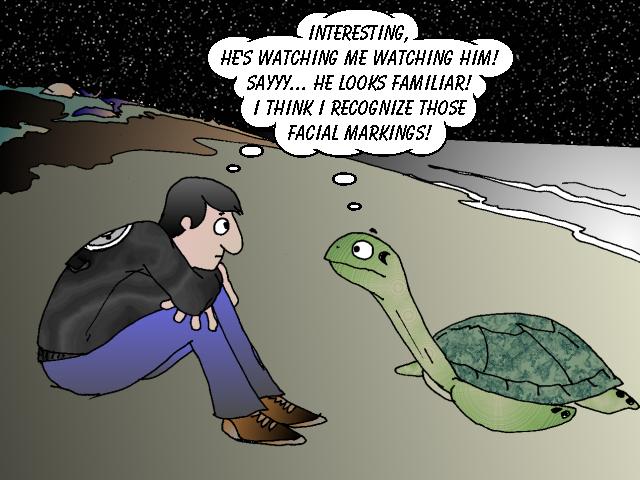
This is one of seven reasons that Elisabet Sahtouris offers to explain why she remains an optimist. You can download a PDF of the entire document here. And a 60 minute power point presentation of her key and liberating ideas are part of the documentary collection that can be found here.
The various emphasis are mine...
Every culture has a creation story that gives meaning, purpose, and guidance to its people.
While priesthoods of one sort or another traditionally told these stories, an experiment with secular democratic states has been underway for the past few centuries. Making these secular states work has been an ongoing experiment not only in achieving democratic governance but also in the even more fundamental experiment of having science, rather than religion, provide the great story of how things work in our universe and on our planet to guide people’s lives. The scientific creation story we’ve known, at its simplest, has come from physics and biology. Physics gave us a nonliving, accidental, purposeless, and meaningless universe, running down to its death by entropy, and biology doomed us to endless struggle in scarcity as nature’s way of evolution—and thus our own human nature.
This soulless materialist science scenario must be the most depressing creation story ever told. Yet our culture has created our reality from it, practicing scientific opposition to religion, believing we must get what we can while we can (usually at someone else’s expense), building a now worldwide win/lose capitalist economy of cutthroat competition, and making material consumption the dominant lifestyle people have or aspire to have. What made us believe this story would lead to the glorious golden age envisioned by the founding fathers of science for more than a handful of people?
It suggested exactly what we got: things running down, ravaged environments, failure to eliminate grinding poverty, the continued terror of warfare, and amazing technological things that blind most of us to this overall picture. Some of us, however, see the present situation as a huge opportunity, ripe for creating the future we truly desire, and our optimism comes from information that science itself has recently produced—information that is more compatible with the hopeful creation stories of other cultures, especially consciousness-based Eastern cosmologies.
This new story explains how the universe is not running down, because entropy is balanced by syntropy, and we point out that species can and do learn how inefficient and expensive competition is compared with the collaboration nature demonstrates in the abundance of unspoiled rainforests, prairies, and coral reefs.
Seen in retrospect, every crisis on our planet has created the stress that became an opportunity for further evolution. Whether a planetwide extinction, an ice age, or a locally destroyed ecosystem, disaster has always been followed by the sudden appearance of many new or previously suppressed species. Nature is conservative when things go well but radically creative when they don’t, and from my perspective, is far too intelligent to proceed by accident!
For my broader cosmic model, I begin with Chilean biologists Humberto Maturana and Francisco Varela’s definition of life as autopoietic (self-creating). By this definition, any entity continually creating and maintaining itself in relation to its environment is alive. The entire universe, from atoms to galaxies, is a self-creating living system by this definition, since all universal objects create and maintain themselves from the vacuum field, with planetary life the most complex result of this overall process.
There is no reason why the data of scientific research cannot be reinterpreted in this new framework composed of different assumptions about the basic nature of our universe. After all, the foundational assumptions of science that nature is nonliving, nonconscious, nonintelligent, thus purposeless and meaningless, are unprovable beliefs stemming from a particular historical context of reaction against religion, prior to which all nature had been seen as alive.
Changing these assumptions will enhance our understanding of scientific findings, as well as reduce the entirely unnecessary rift between science and spirituality. Moreover, it gives us the life-sustaining creation story we need—a story that inspires and encourages our rapid maturation, knowing that nature is on our side in this learning process.
Elisabet Sahtouris, PHD, is a member of the World Wisdom Council and a fellow of the World Business Academy. Her numerous venues include the World Bank, State of the World Forum, and the World Parliament. Her books include EarthDance: Living Systems in Evolution, and her Web sites are www.sahtouris.com and www.ratical.org/lifeweb. She is currently at work on a book about global warming. You can watch video clips of her speaking to this subject here.

No comments:
Post a Comment